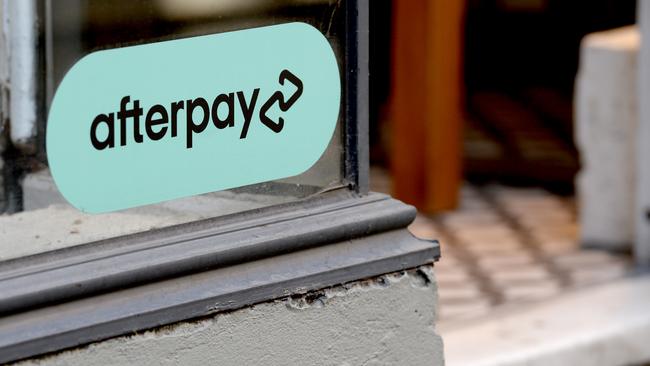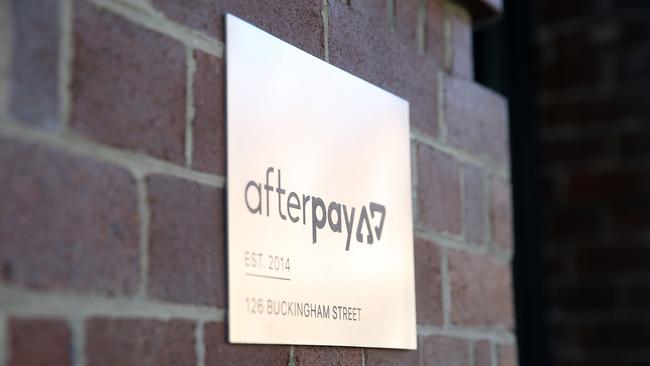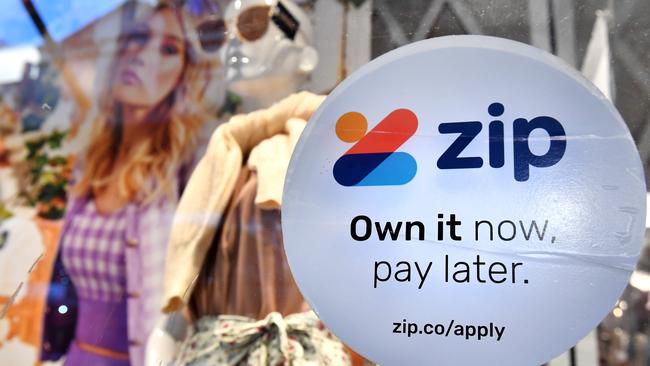MoneyMe warns of ‘massive blind spot’ in credit scoring without BNPL regulation
Non-bank lender MoneyMe backs covering the buy now, pay later industry with the same type of regulation as other credit products.

MoneyMe supports capturing buy now, pay later in the same regulatory net as other credit products, saying it would level the playing field and plug credit score “blind spots”.
The non-bank lender’s chief executive, Clayton Howes, said lenders were often making decisions about a customers’ ability to repay without knowing their BNPL debts, because BNPL players were not compelled to provide credit reporting data.
“There’s a massive blind spot so it’s an inconsistent approach to thinking about a customer’s financial credit worthiness,” he said. “We don’t know about their buy now, pay later account … we don’t know that they may be behind. We may lend them money to pay off their buy now, pay later account which is credit for credit.”
The government is assessing three options to regulate the BNPL sector, as other markets such as New Zealand and the UK clamp down on the industry.
MoneyMe supports Treasury’s third option which seeks to regulate the industry in the same way as other credit products. That requires players to hold a licence and conduct responsible lending checks to assess whether a customer can afford repayments.

The second option proposed requires players obtain and keep a credit licence, and abide by responsible lending rules that would be specific to BNPL so firms would determine if instalment products were unsuitable.
One option would amend the Credit Act to impose an industry-specific requirement for BNPL providers to check that a product was not unaffordable before it was offered.
That option relies on co-regulation and strengthening of an industry code, but players would not require a licence.
Banks and other lenders have seen the BNPL sector as a competitive threat given its burgeoning growth in recent years.
However, Mr Howes was adamant, the BNPL sector required the same level of regulation as other credit products.
“What’s the point of (options) one and two?” he said. “(BNPL is) giving somebody credit … (regulation) has got to create a fair approach for lenders and customers and for me, being fair we need to have the reporting standard so that we don’t have blind spots.”
MoneyMe was involved in industry roundtables and Treasury consultation on BNPL regulation, but did not make a submission to the review. The company on Monday introduces a credit score product which has attracted more than 37,000 new customers during a beta trial.
Macquarie Bank and ING in December separately told mortgage brokers they were bringing BNPL debts into their respective home loan serviceability tests, meaning customers would need to disclose BNPL debts. That comes as interest rates are tipped to continue to rise in 2023 and banks prepare for more borrowers to face financial hardship.
Westpac’s submission on BNPL regulation urged the government to impose the same rules on the sector as those covering products such as credit cards and home loans, while National Australia Bank’s submission backed Treasury’s second option. The bank is understood to be open to certain elements included in the third option such as mandatory BNPL credit score reporting, the licence requirement and consistency in hardship provisions.
NAB is a lender to the BNPL sector while Westpac owned a stake in Zip before selling out in 2020 for a sizeable profit.

Afterpay – owned by US company Block – has previously expressed support for the option one regulatory model, to balance innovation and consumer protection. Zip initially highlighted option two as its preferred model.
The corporate regulator in a 2020 report found 21 per cent of BNPL users surveyed had missed a payment in the previous 12 months and some had cut back on essentials or taken out loans to make payments on time.
BNPL user Brooke Haebich – who took up Afterpay and Zip instalment products soon after their launch – said while she had no issues with them for several years that changed in 2022. Her difficulties started following a medical emergency with her baby and more recently while her partner has been without an income for a month before starting a new job.
With a $3500 Afterpay limit, Ms Haebich figured out she could buy supermarket vouchers with the instalment service and repay over time to buy groceries.
“To us that became survival mode because we needed food on the table … we couldn’t afford the amount of groceries that we needed and obviously with a baby as well it’s not just food, it’s things like nappies and wipes,” she said.

Ms Haebich – now working with a financial councillor – informed the companies of her hardship but said that was of little help. “If payments were negotiated for a certain date they debited the accounts on different dates or earlier,” she added.
If regulatory options two or three are taken up by the government, BNPL players will be required to have internal and external dispute resolution and hardship provisions. Option one includes strengthening an industry code including “access and standards” of dispute resolution and hardship practices.
“Our experience of them (BNPL hardship processes) is that they are not good quality and they’re not offering people assistance when they’re in hardship,” said Gerard Brody, the Consumer Action Law Centre chief.
Consumer advocates lodged a joint submission to the review – signed by 22 organisations – which urged option three to be the model followed in Australia, albeit with additional safeguards.
“This reform is overdue in my view. This has been a significant problem for a number of years,” Mr Brody said. The joint submission included 27 case studies covering BNPL, wage advance and payday lending customers.
Mr Howes said in a rising rate climate where more information was available customers‘ engagement with their credit profile was “incredibly high”.
He also noted that recent high-profile data hacks had prompted more customers to check their credit score.
“People are more attentive of where their information is and if their credit file is intact.”
MoneyMe will draw on credit file data from Experian.




To join the conversation, please log in. Don't have an account? Register
Join the conversation, you are commenting as Logout